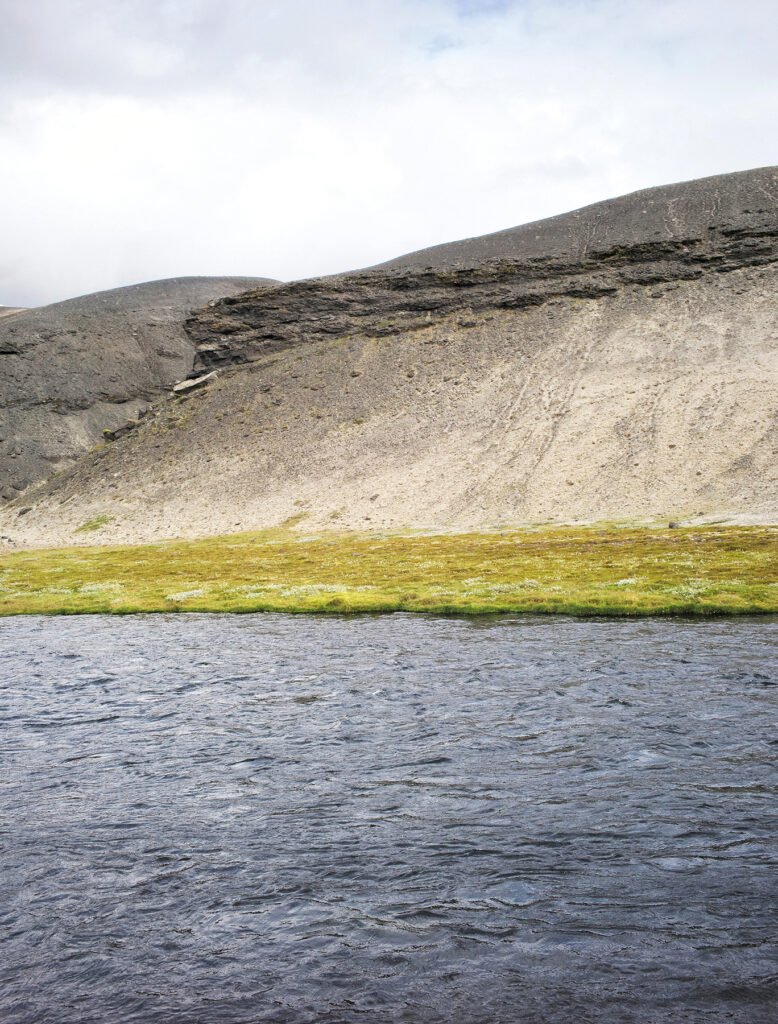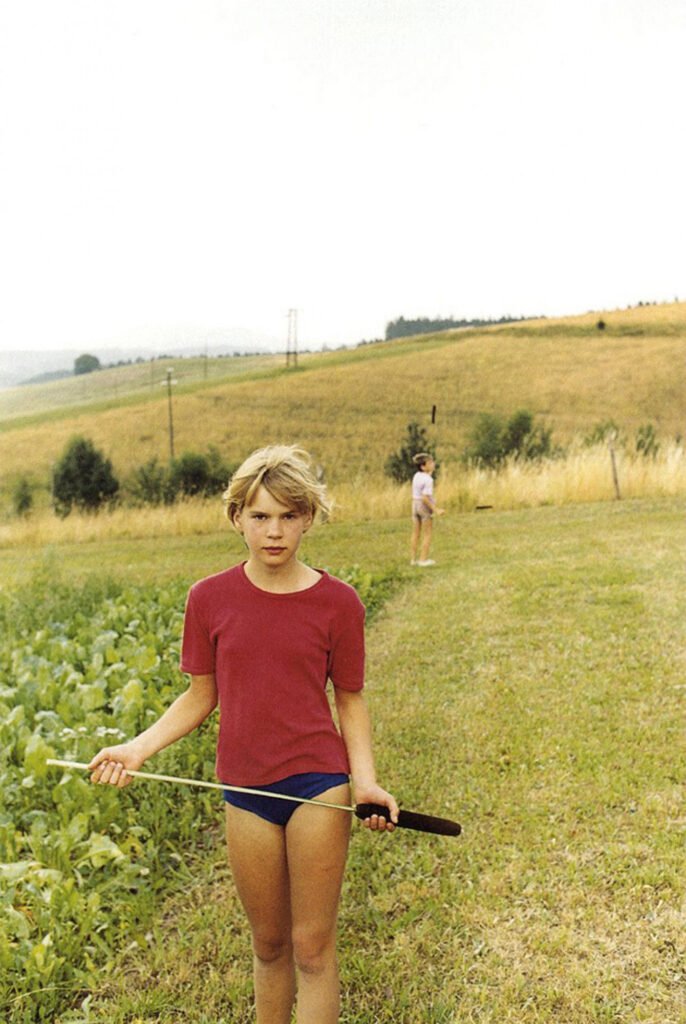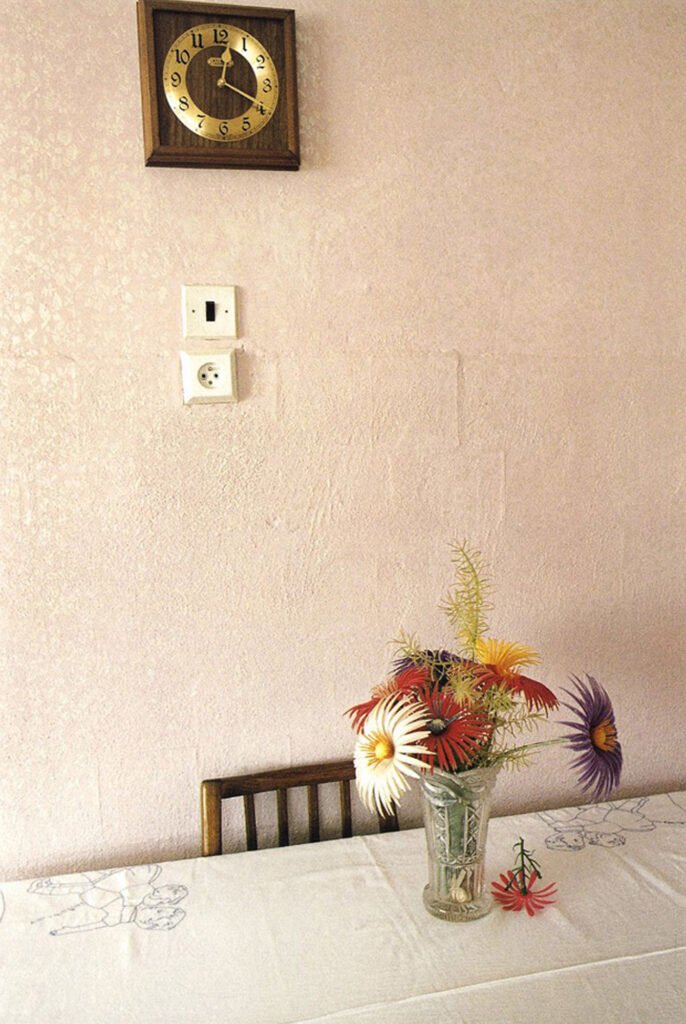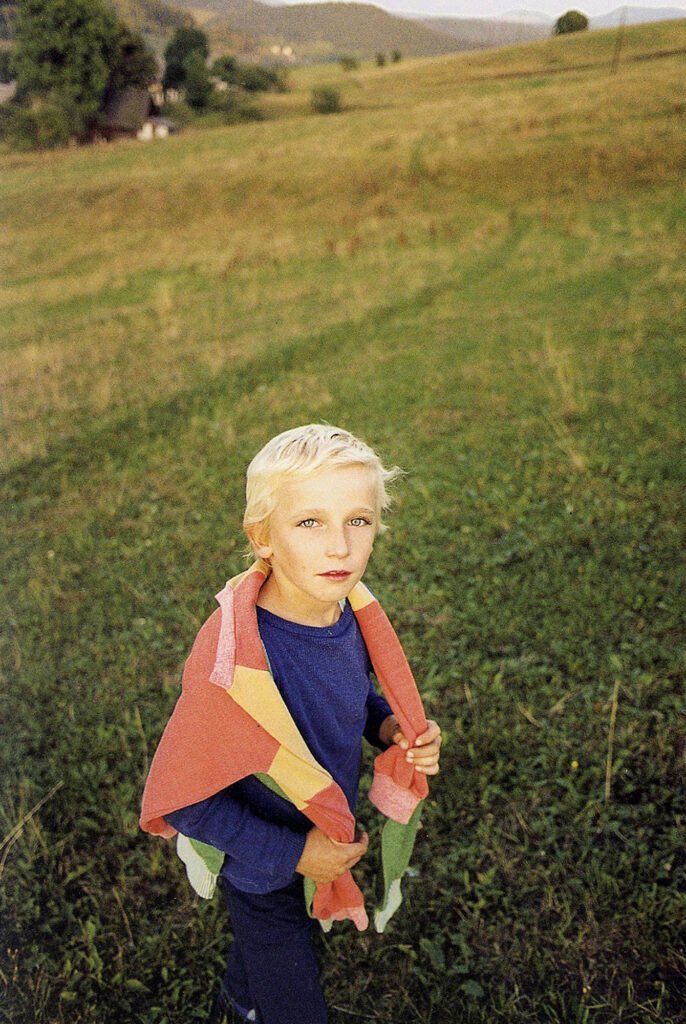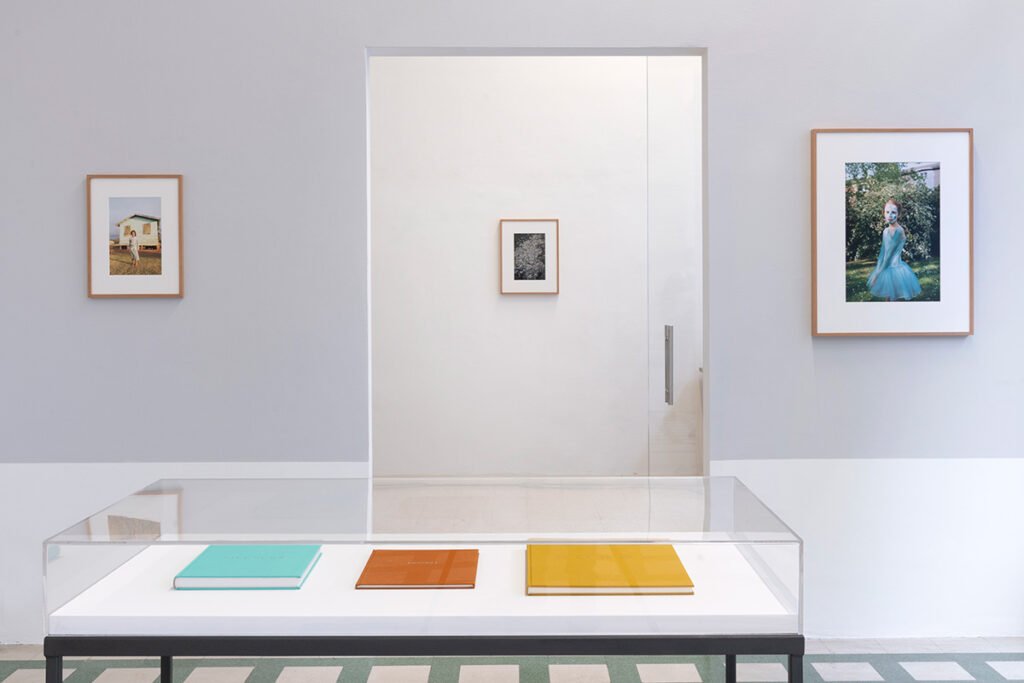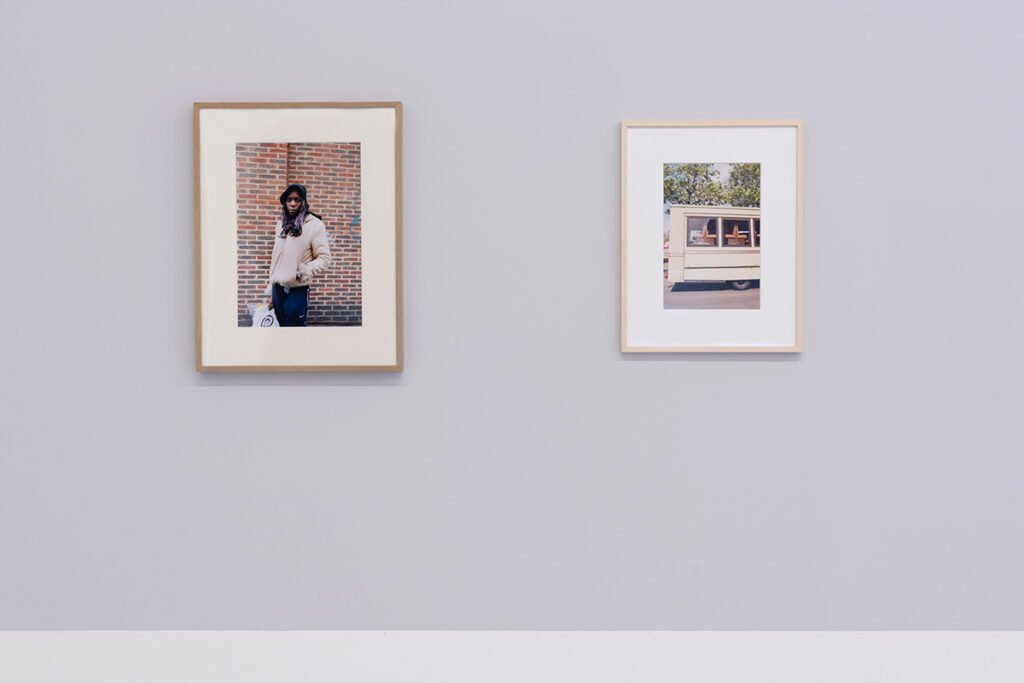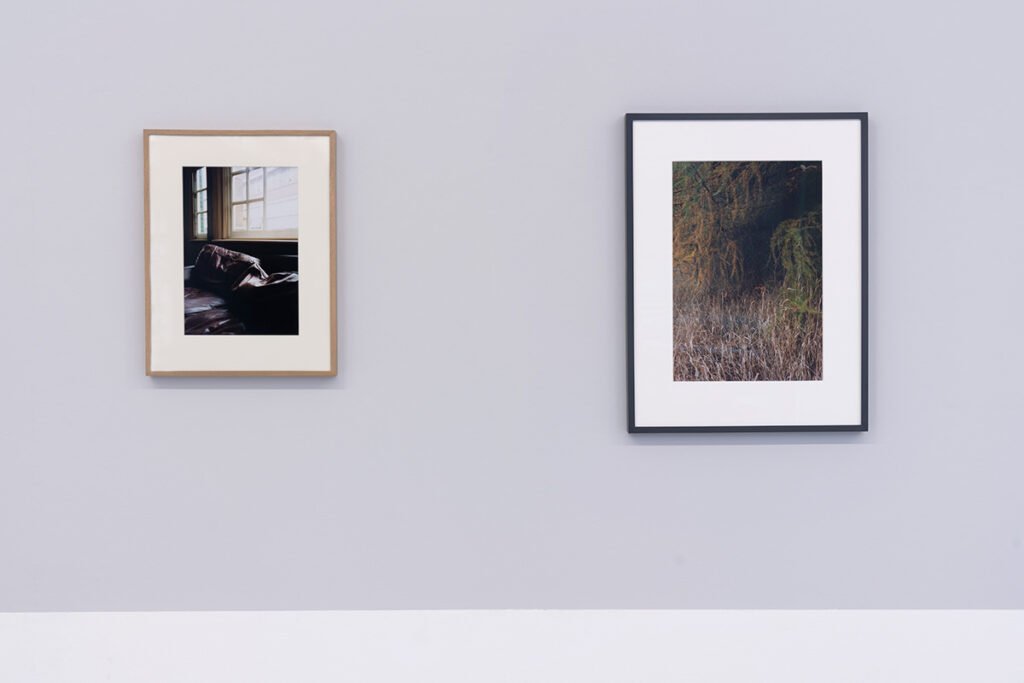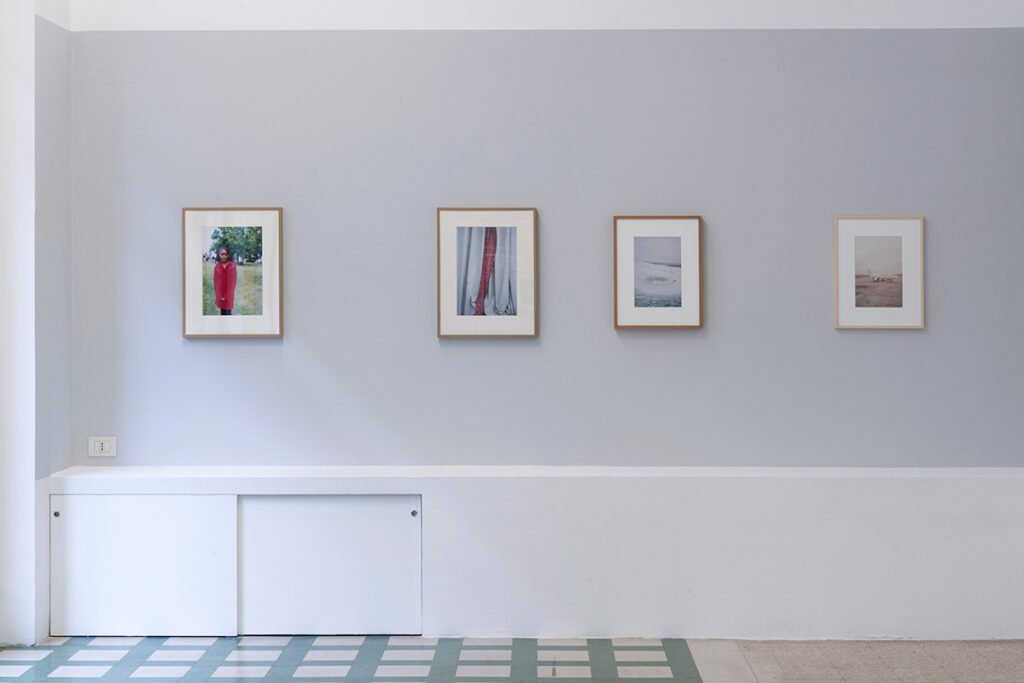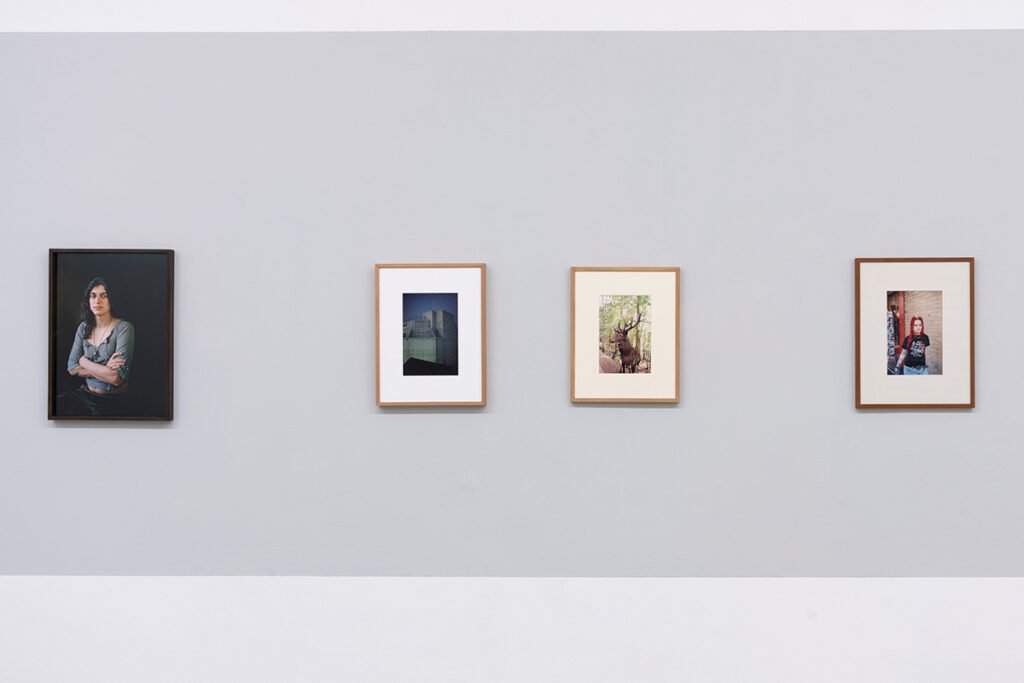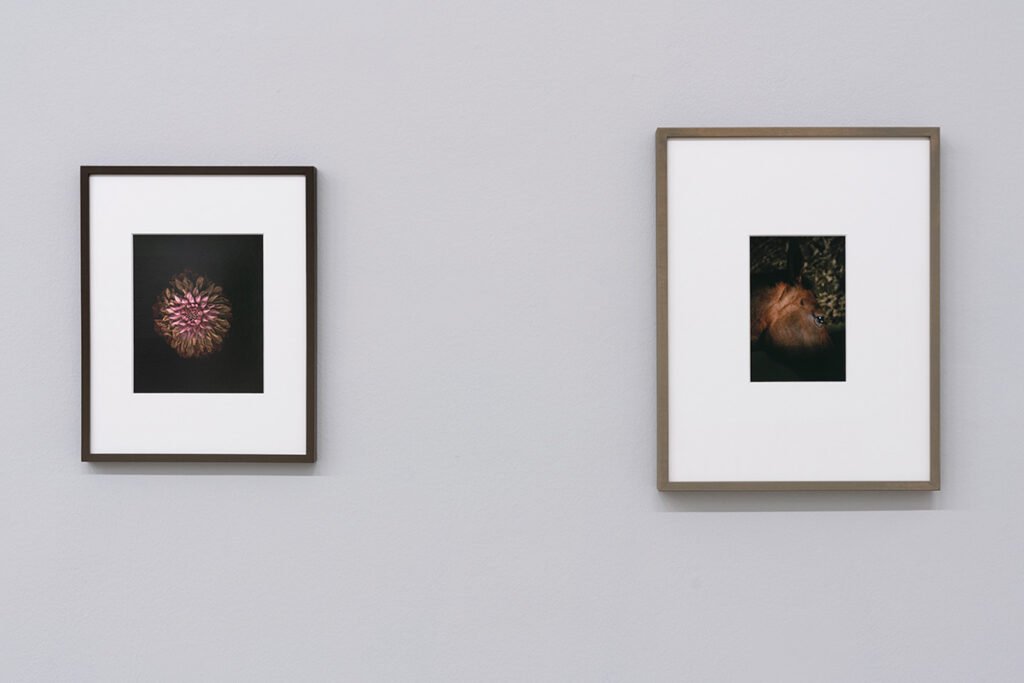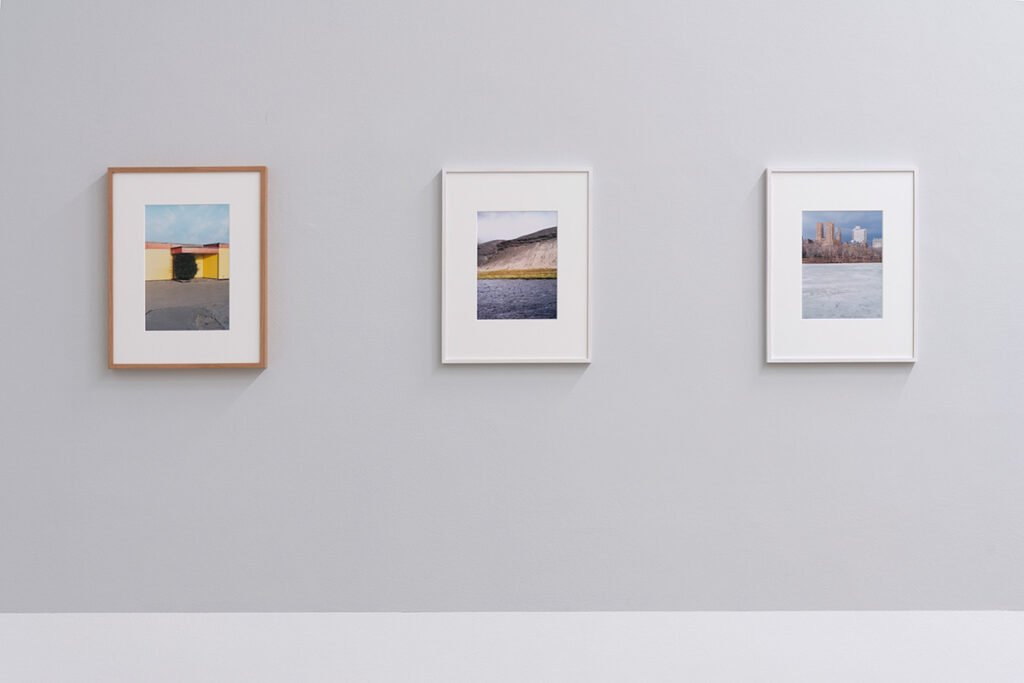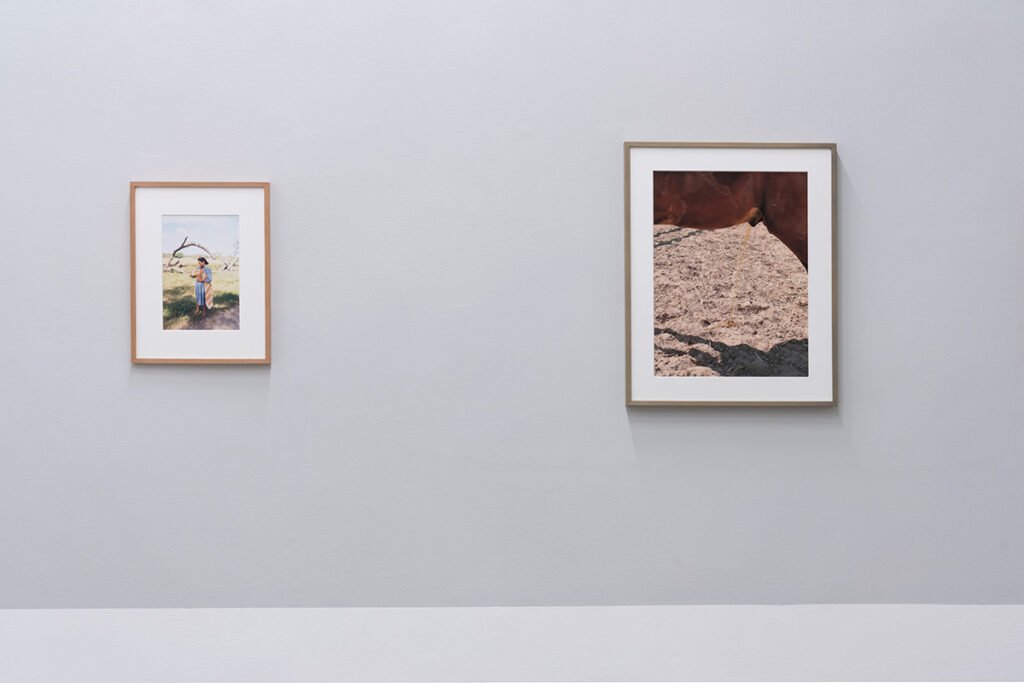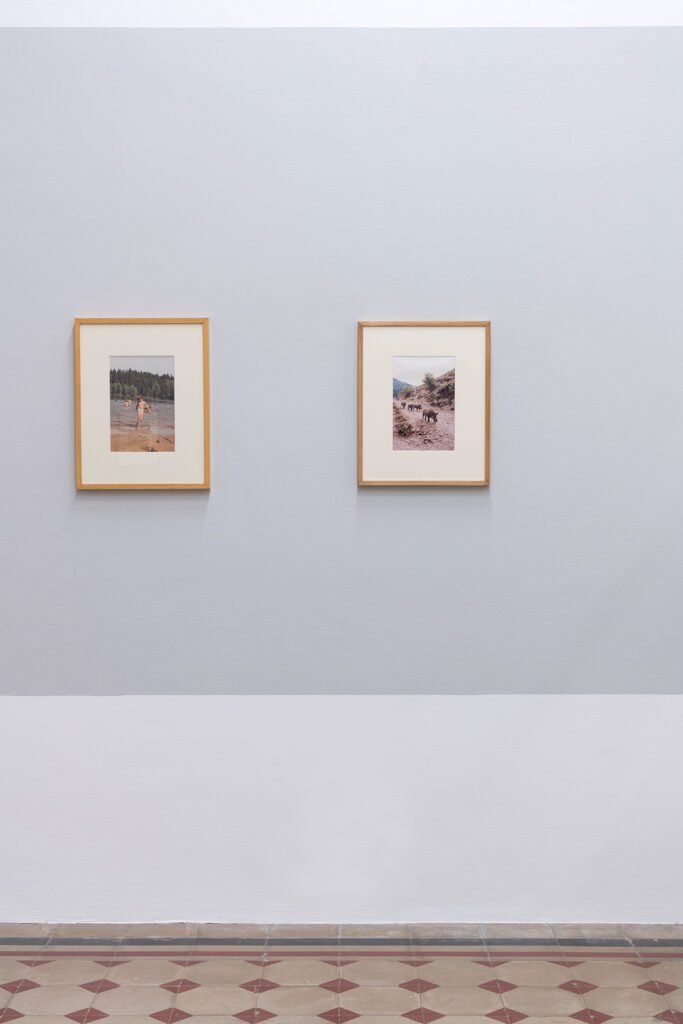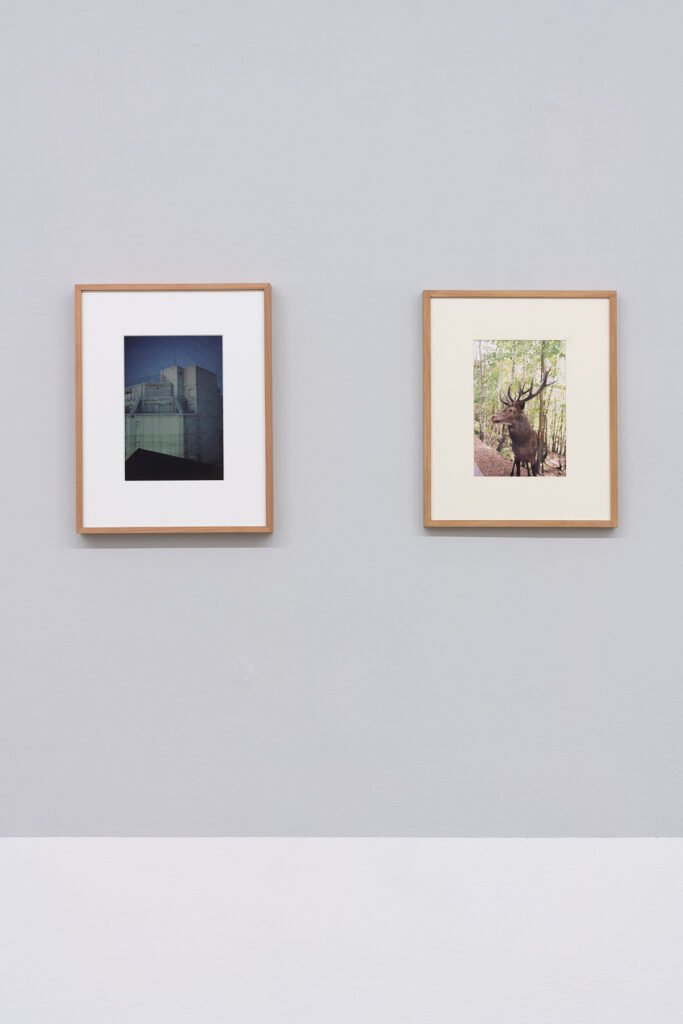Looking at the work of the Czech author Jitka Hanzlová is equivalent to approaching an exploration and an orientation among the things of the world, for which each element named, each subject photographed by the author, be it a landscape, a plant, a portrait or a scene, become character and protagonist of a narration.
Starting from this perspective, we can approach every single image of Jitka Hanzlová, sensing in these the features of a portrait, an image necessary for the author to create a mapping that sees the relationship between the individual and the content in which she lives, the center of a reflection that begins with the biographical events of the author herself.
Underlying all the work of this artist whose instinctive gaze is focused on questioning the concept of identity and belonging is in fact a traumatic and complex experience like the political exile that she herself experienced when in 1982 she was forced to leave his homeland due to the difficult political circumstances that at that historical moment saw the Czechoslovak Federal Republic, (now the Czech Republic), struggling under a communist regime that became, starting from the famous Prague spring in 1968, increasingly repressive.
Due to the exile, Hanzlová was not allowed to set foot in his native country and see his family until, in 1990, following the fall of the Berlin Wall and a complex of political, social and economic reforms strongly supported by the then general secretary of the CPSU Mikhail Gorbačëv, known as perestroika, a new opening of the many borders that from the end of the Second World War up to that moment had seen the United States and the other NATO members oppose themselves in two blocs in opposition to the Soviet Union and the members of the Warsaw Pact became possible.
The loss of identity and cultural references have marked for Jitka Hanzlová a personal and artistic evolution that has seen her, starting with the photographic series Rokytník, in which the author tells of her return home after eight years of exile, investigate photographic series after photographic series that same exile experience, repeating the attention and postures gained in this troubled path.
An attention, the one towards the concept of identity and belonging, that the author finds and repeats in different forms and subjects, realizing project after project a listening that crosses contemporary culture through the presentation of different places and circumstances. A nomadic photographic activity that keeps on question itself through the subjects; each of which, of equal importance to the others, becomes a mirror through which to search for one’s own image, or to produce a diacritical question whose results and signs characterize a universal discourse.
Configuring itself as a collection of silent elements to which the author gave attention catching the features and processing around these a speech through the organization of photographic series, the work of Jitka Hanzlová crosses contexts, identity and cultures involving us in a significant research around the sense of belonging that is so much at the center of her images as part of a broader and fundamental political, social, human reflection regarding the need for each of us to mature a greater complicity with things, forms, of the world.
Jitka Hanzlová was born in 1958 in Náchod, Czech Republic. She lives and works in Essen, Germany. In over 30 years Hanzlová has portrayed the human, the urban, and nature in her photographic series: these are excerpts, moments of entirety, existing in relations that connect us to ourselves, to one another, us to nature and to every surrounding.
Deeply marked by her experience of exile at the beginning of the ‘80s and later return to her native country after the Velvet Revolution of ’89, Hanzlová has developed, step by step, her own visual language; with instinctive gaze focused on questioning identity and belonging, she looks through her subjects, seeking an inner matrix of existence. With time, experience and practice become the true concept behind her photography.
Starting with Rokytník (1990 — 1994) and until her latest WATER (2013 — 2019), Hanzlová’s photographs are silent appearances, in which one may gather signs of cultures and contexts she has chosen to capture: these images live within the bodies of her series and in her well known publications, but also transcend them, drafting together a transforming texture of the world.
In 1993 Hanzlová was awarded the Dr. Otto-Steinert-Preis by the Deutsche Gesellschaft für Photographie, in 1995 she received the DG BANK Frankfurt scholarship, in 2003 the Grand Prix Arles, and in 2007 the Paris Photo Prize for Contemporary Photography. She was twice nominee for The Citibank Photography Prize in London. Her noteworthy solo exhibitions include Jitka Hanzlová. Silences, Národní Galerie, Prague (2019); National Gallery, Edinburgh (2012); Fundación MAPFRE, Madrid (2012); Museum Folkwang, Essen, Germany (2005); Stedelijk Museum, Amsterdam (2001); Fotomuseum Winterthur, Winterthur, Switzerland (2001); Deichtorhallen, Hamburg, Germany (2000); Kunstverein, Frankfurt, Germany (1996). Selected group shows include Essere Umane, Musei San Domenico, Forlì, Italy (2021); SUBJECT and OBJECT. PHOTO RHINE RUHR, Kunsthalle Düsseldorf, Düsseldorf (2020); NEUE WELTEN. Die Entdeckung der Sammlung, Museum Folkwang, Essen, Germany (2019); The Moment is Eternity – Works from the Olbricht Collection, ME Collectors Room, Berlin, Germany (2018); BEHOLD THE MAN, Kunstmuseum Magdeburg, Magdeburg, Germany (2017); The Photographic I – Other Pictures, S.M.A.K., Ghent, Belgium (2017); Portraits. Photographs from the MAPFRE Collection, Museo de la Ciudad de México, Mexico City (2017); Landscapes and People. From the Photographic Collection of the Albertina, Albertina Museum, Vienna (2016); Mit anderen Augen. Das Porträt in der zeitgenössischen Fotografie, Kunstmuseum Bonn, Bonn, Germany (2016), travelled to Kunsthalle Nürnberg and Kunsthaus, Nürnberg, Germany (2016); Human Nature. Art Collection Deutsche Börse, Deutsche Börse AG, The Cube, Eschborn, Germany (2016), travelled to NRW-Forum Düsseldorf, Düsseldorf, Germany (2016).
